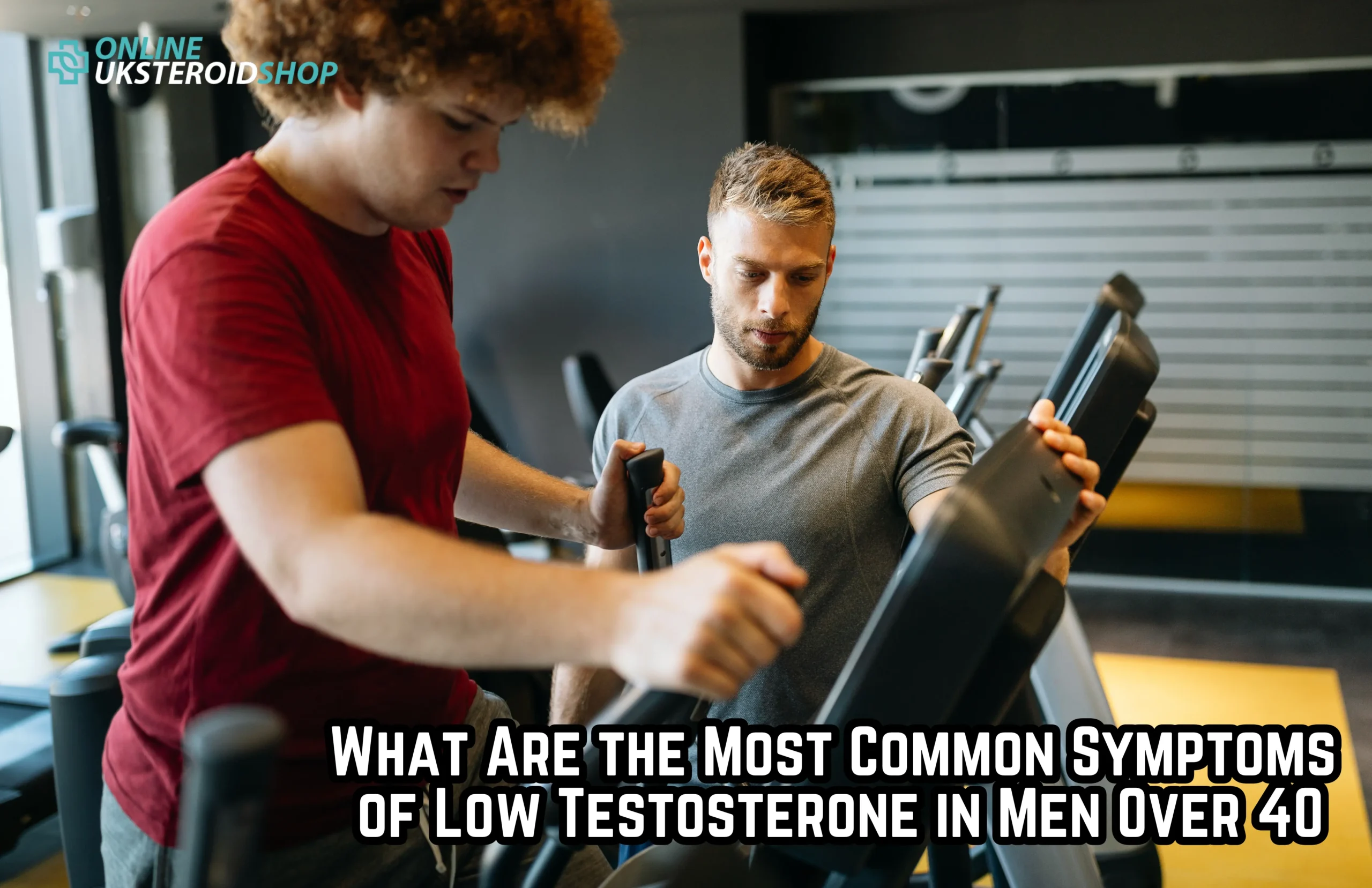Common Symptoms of Low Testosterone in Men Over 40?
As men age, their testosterone levels naturally begin to decline, often starting around the age of 30 and continuing into their 40s. This decrease in testosterone can have significant effects on both physical and mental health. Recognizing the most common symptoms of low testosterone in men over 40 is crucial for managing the condition and seeking appropriate treatment.
Low Testosterone Symptoms:
Below are the key signs to watch for, along with explanations on how low testosterone affects men.
Low Energy Levels and Fatigue
Low testosterone is one of the most common and probably most likely to have a detrimental impact, and that is low energy levels. There are a couple ways men may feel fatigued, sluggish, and a bit less motivated despite getting a good nights sleep. As levels of testosterone decrease, energy is affected and your overall stamina and vigor can be affected. Reduced physical activity can also worsen the problem, for instance, this constant feeling of tiredness.
Reduced Libido and Sexual Performance
Closely connected to a man’s sex drive, testosterone credits much of the libido that he has. Low testosterone may also affect sexual desire and ability to achieve and maintain an erection in men. This is certainly one of the most obvious symptoms and can cause strain on relationship or even harm a man’s self worth.
Mood Swings and Irritability
The most common symptoms of low testosterone include changes in mood such as increased irritability, anxiety, even depression. Men feeling more emotionally unstable when they have lower levels of testosterone is because it has a direct effect on their mental health. And these mood swings can disrupt relationships as well as daily interactions and, as a result, your stress level can increase and you find it harder to deal with things on a day to day basis.
Loss of Muscle Mass and Strength
Muscle mass and strength require testosterone. When testosterone levels fall, men usually see the muscle tone drop, which makes it increasingly difficult to keep or build muscle, even with regular exercise. The effects of low testosterone also make it more difficult to lose weight and can contribute to an increase in body fat around the abdomen.
Increased Body Fat and Decreased Bone Density
Men also with low testosterone commonly have loss of muscle and an increase in body fat, and the most commonly occurring site of excess fat is around the waist. Testosterone regulates fat distribution in the body, which is the reason for this. Further, low levels can also cause a decrease in the density of the bone, thereby making one susceptible to fractures and osteoporosis.
Memory Loss and Difficulty Concentrating
A Testosterone deficiency can bring on memory problems and trouble concentrating, and testosterone is also used in cognitive function. It can affect both personal and professional life if men don’t take enough care of their low testosterone. Low testosterone can also lead to brain fog, meaning that overall the person has a general feeling of slowness and vividness of mind.
Sleep Disturbances and Insomnia
Sleep quality also depends on testosterone levels. This can contribute to insomnia or some other disturbance of sleep in men with low testosterone. Bad sleep exacerbates fatigue, and makes the other symptoms of low testosterone, such as irritability, more prominent, through a vicious circle of tiredness and irritation.
Decreased Motivation and Low Confidence
Men who are low in testosterone may have reduced motivation in both physical activities and in their other life activities. In the lack of drive, you won’t be able to pursue your goals, face challenges, or stay productive. The changes in physical appearance, such as weight gain, loss of muscle mass, can influence self esteem and generate ideas of self confidence.
Increased Risk of Cardiovascular Issues
We are at the beginning stages of looking at low testosterone as potentially a risk factor, as it has been if it is associated with cardiovascular disease, emerging studies are suggesting that it’s increased. Testosterone helps to regulate blood pressure and blood cholesterol. Kokulski stated that as testosterone falls, men might develop as well as an increase in their unhealthy cholesterol levels that can lead to conditions like elevated blood pressure, heart disease and stroke.
Seeking Treatment for Low Testosterone
If you are having several of the above symptoms, it is important to meet a health care professional. There are simple test (a blood test) that a doctor can use to diagnose low testosterone and suggest appropriate treatment options. Lifestyle changes, hormone replacement therapy (HRT) or medications are available to treat testosterone levels and relieve symptoms.




